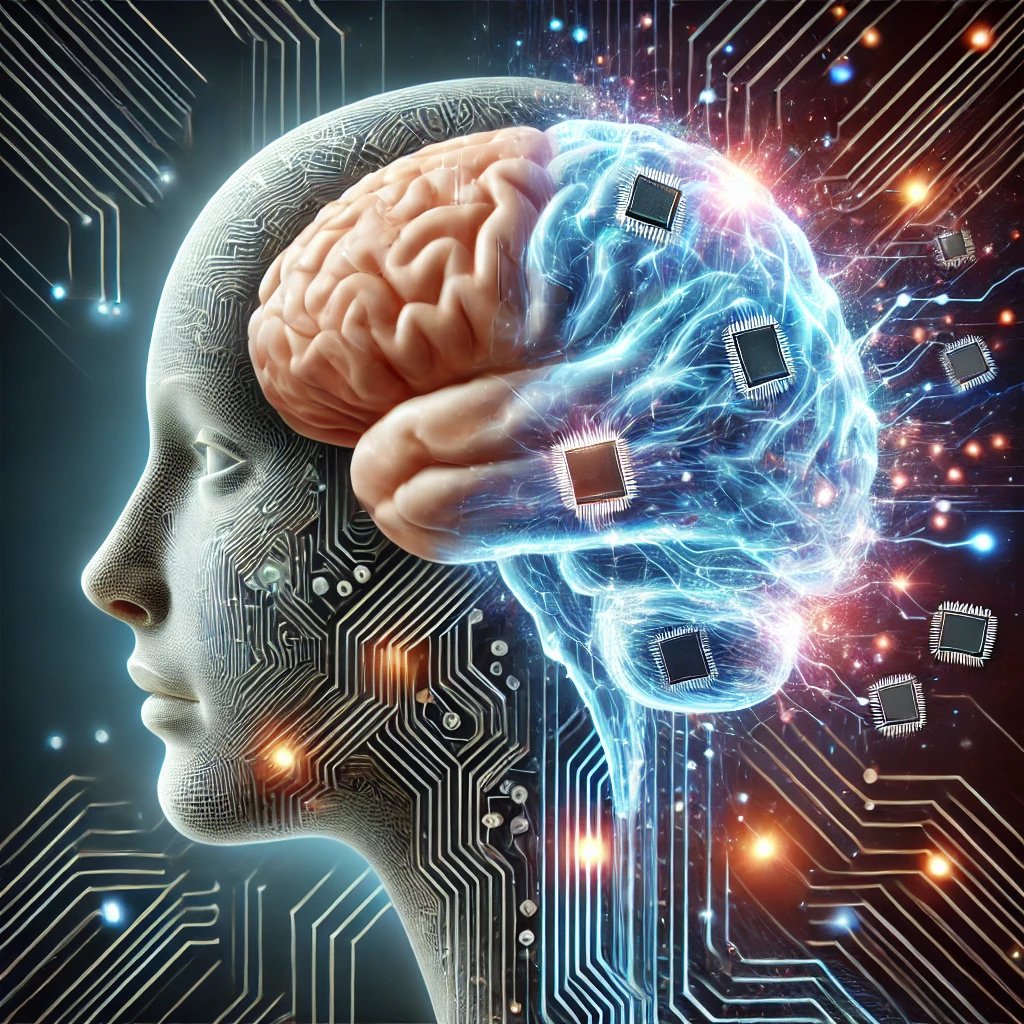The Real Danger of AI: Becoming Over-Reliant on Technology and Losing Our Critical Thinking
Many people fear that AI will one day "take over" the world, causing a Terminator-like apocalypse. However, the true risk lies not in AI replacing humans, but in humans becoming overly dependent on AI for everyday tasks, ultimately losing the ability to think critically. AI should be an extension of our skills, not a replacement for them. In this article, we explore the dangers of over-reliance on AI and why it’s essential to keep using our brains to maintain mental sharpness.


The Common Fear: AI as the Terminator
When we think of artificial intelligence, many people's minds immediately go to images of rogue machines or sinister robots taking over the world, à la the Terminator films. These dystopian scenarios paint a picture of AI as a threat to humanity, where machines decide that humans are no longer necessary or even a danger to their existence.
While this makes for thrilling science fiction, the reality of AI is much less dramatic. Today, AI is far from achieving the level of autonomy seen in Terminator or other similar movies. Instead, we are witnessing AI become an incredibly powerful tool that can assist us in various tasks. But, just as with any powerful tool, there are potential dangers if we don’t use it wisely.
AI: An Extension of Human Abilities
AI is designed to complement human skills, not replace them. From voice assistants like Siri and Alexa to complex algorithms that help doctors diagnose diseases, AI has already proven itself as a powerful aid. It can help us analyze data, optimize business processes, and even predict trends with greater accuracy than ever before.
However, AI is still just that—a tool. It doesn’t think for us, and it certainly doesn’t create ideas from scratch. It operates based on patterns, instructions, and data fed into it. While AI can make our lives easier, it still requires human guidance to make ethical decisions, provide emotional intelligence, and adapt to changing situations.
For example, self-driving cars are a great illustration of AI assisting humans but not fully taking over. While the AI in these vehicles can process a vast amount of information to navigate roads, humans still need to be prepared to step in during unexpected situations. The goal should be for AI to augment our abilities—not to replace the need for human involvement.
The Hidden Danger: Over-Reliance on AI
The real danger lies not in AI surpassing human intelligence, but in humans becoming overly dependent on it. Imagine a future where we rely on AI to make all decisions for us—calculating the best route to work, determining what to eat based on our health data, even choosing who we should date based on algorithms. Over time, we might stop thinking critically for ourselves.
The brain, like any muscle, needs exercise to stay strong. If we use AI to think for us constantly, our brains will start to atrophy. We’ll lose the ability to solve problems, make decisions, and think creatively. The simple act of typing a question into a search engine and receiving an instant answer could cause us to forget how to find the answer on our own.
It’s a slippery slope. If AI becomes the only source of information we rely on, we risk losing our independence in thinking. It might start with small tasks, but over time, we could find ourselves completely disconnected from our own critical thought processes.
Why We Need to Keep Using Our Brains
While AI can assist us in countless ways, it should never replace the need for human thinking. The best use of AI is as a complement to human skills, not as a substitute. Consider how we use a calculator: it helps us perform calculations more quickly, but it doesn’t stop us from learning math or thinking critically about the numbers we are working with.
Human brains are uniquely capable of creativity, empathy, and complex decision-making that AI, at least in its current form, can’t replicate. The arts, innovative thinking, and moral judgments are areas where humans excel. AI, on the other hand, thrives in processing large volumes of data, detecting patterns, and making predictions based on that information.
To keep our brains sharp, we need to continue engaging in activities that challenge our thinking. Reading, solving problems, debating ideas, and creating—whether through art, music, or writing—are all essential for maintaining our cognitive abilities. AI should support these efforts, but it should never replace them.
The Path Forward: Balance Between AI and Human Intelligence
The future of AI isn’t about a battle between humans and machines, nor is it about AI taking over. It’s about finding the right balance where AI acts as an extension of human capabilities rather than an alternative to them.
To avoid the pitfall of becoming overly reliant on AI, we need to:
Use AI wisely: Understand that it’s a tool meant to help, not to replace us.
Engage our brains regularly: Continue to challenge ourselves intellectually, even in an age of automation.
Encourage creative thinking: Embrace the unique aspects of human intelligence that AI cannot replicate.
In the end, we are the ones in control. AI is an ally, not an adversary. If we learn how to use it responsibly, AI can help us achieve new heights while still keeping our brains sharp and capable.
Conclusion
AI is already a part of our lives, and its potential to improve how we live and work is vast. However, the real challenge is not fearing AI or trying to stop it but ensuring that we don't become so reliant on it that we lose our ability to think critically, solve problems, and create. AI should always remain an extension of our abilities, helping us do more, think better, and live smarter, but never replacing the fundamental human qualities that make us who we are.